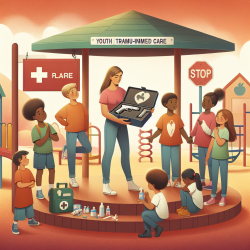Introduction
Chronic skin diseases like acne, atopic dermatitis (AD), and psoriasis significantly impact the lives of pediatric patients and their caregivers. These conditions not only affect physical health but also have profound psychosocial consequences, including stigmatization, bullying, and increased suicide risk. A comprehensive understanding of these impacts is crucial for practitioners aiming to improve outcomes for affected children.
Research Insights
The research article "Skin Disease in Children: Effects on Quality of Life, Stigmatization, Bullying, and Suicide Risk in Pediatric Acne, Atopic Dermatitis, and Psoriasis Patients" provides valuable insights into the psychosocial challenges faced by children with these conditions. The study highlights the importance of addressing both physical and mental health symptoms to enhance the quality of life for these patients.
Quality of Life and Self-Image
Children with visible skin lesions often experience challenges related to self-image and social interactions. The study found that these children are at higher risk for strained family relationships, poor self-esteem, and psychiatric comorbidities. This underscores the need for healthcare providers to recognize and address the psychological distress associated with these conditions.
Stigmatization and Bullying
Stigmatization and bullying are common experiences for children with chronic skin conditions. These negative social interactions can exacerbate feelings of isolation and low self-worth, further impacting mental health. Educating peers and teachers about these conditions can help reduce stigma and create a more supportive environment for affected children.
Suicide Risk
Alarmingly, the study highlights an increased risk of suicidal ideation and behavior among children with chronic skin diseases. This finding emphasizes the critical role of early intervention and the need for healthcare providers to be vigilant in assessing mental health risks in these patients.
Implementing Research Outcomes
Practitioners can leverage the findings of this research to improve their approach to treating pediatric patients with skin diseases. Some recommended strategies include:
- Implementing screening procedures to identify psychological issues early.
- Connecting patients and families with support groups and educational resources.
- Training teachers to understand and address the needs of students with chronic skin conditions.
- Encouraging shared decision-making between healthcare providers, patients, and their families.
Conclusion
Addressing the psychosocial impacts of pediatric skin diseases requires a multifaceted approach that includes both medical and psychological interventions. By implementing the strategies outlined in this research, practitioners can help improve the quality of life for affected children and reduce the risk of long-term psychosocial consequences.
To read the original research paper, please follow this link: Skin Disease in Children: Effects on Quality of Life, Stigmatization, Bullying, and Suicide Risk in Pediatric Acne, Atopic Dermatitis, and Psoriasis Patients.










